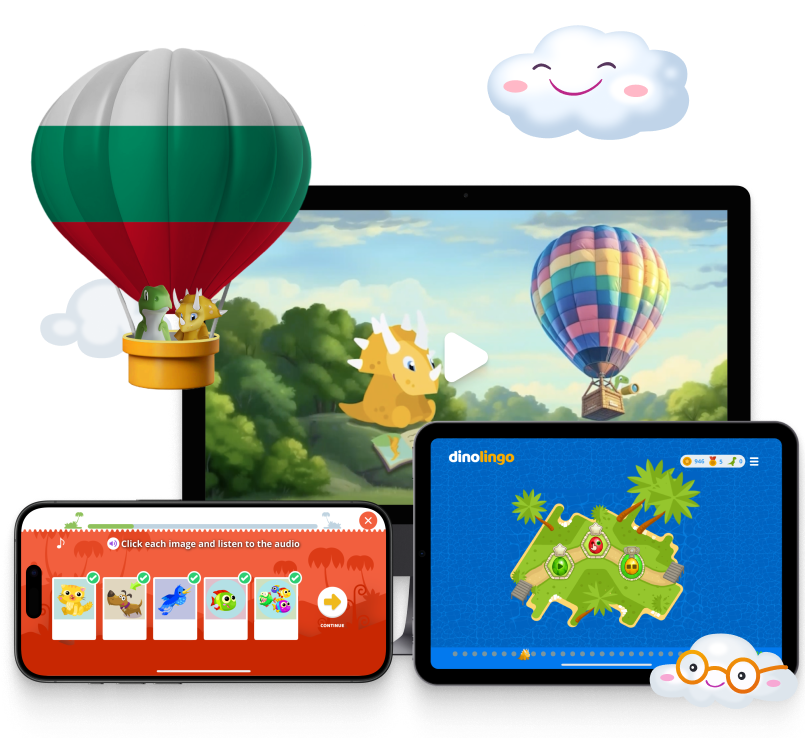Bulgarian Food, Fun, Festivals, Language, and More!
Bulgaria is a country full of traditions, delicious foods, and interesting customs. From tasty breakfasts to exciting games, this guide will help you learn more about Bulgarian life in a way that’s fun and easy to understand.
What Do Bulgarians Eat?
Bulgarian cuisine is similar to the food in other Balkan countries. Thanks to the warm climate, people eat many vegetables, herbs, and fruits. It’s common to enjoy a salad with every meal.
A typical breakfast includes banitsa, a warm pastry filled with cheese or meat. It’s usually eaten with yogurt or boza, a malt drink made from maize or wheat with a sweet and sour taste.
Lukanka is a special type of Bulgarian salami that is flat and flavorful. Sirene, a white cheese similar to feta, is used in many dishes including the popular Shopska salad, made with tomatoes, cucumbers, onions, and peppers.
Because of Bulgaria’s long history with the Ottoman Empire, Turkish foods like doner kebab and baklava are also popular.
Traditional Bulgarian Clothing
Different regions in Bulgaria have different styles of traditional clothing.
Men often wear black or white trousers, a white shirt, a bright sash, a black lambskin hat, and leg wraps or socks.
Women’s outfits include aprons or tunics, a belt, a headdress, socks, and sometimes a vest or overcoat. The patterns and colors often show where someone is from.
Festivals and Celebrations
Kukeri is a January festival where men wear animal masks and bells to chase away evil spirits. They dance through villages to bring good luck for the new year.
On March 1st, Bulgarians celebrate Baba Marta by giving red and white thread charms called martenitsi to welcome spring. People tie them to trees, bags, or wrists.
May 24th is the Day of Bulgarian Education and Culture. It celebrates the Cyrillic alphabet created by Saints Cyril and Methodius, who are honored in every church.
A Folk Tale: The Sweetest Fruit
A father gave his three sons gold and asked them to find the sweetest fruit. The oldest brought grapes. The middle son brought bananas and dates. The youngest stayed home, learned with books, and said the sweetest fruit was knowledge. The father agreed and gave him the inheritance.
Bulgarian Games for Children
Policemen and Thieves (стражапи и апаши): Children play in two teams. One team are policemen, the other are thieves. The police try to catch the thieves, and then the teams switch.
Sudge (садже): One player throws a ball and suggests a name like “Eliza.” If the other player wants the name, they catch the ball. If not, they throw it back. Saying “sudge” lets the player choose their own name.
Communication and Family Values
In Bulgaria, nodding means “no” and shaking your head side to side means “yes”—the opposite of most places! People speak loudly and stand close when talking.
Family is very important. Often, several generations live together. Grandparents help raise children. Young couples may live with parents until they get their own home. Elderly family members are cared for by the younger generation.
Amazing Bulgarian Facts
- The first electronic computer was invented by John Vincent Atanassoff, who was Bulgarian.
- Bulgaria produces about half of the world’s rose oil, used in famous perfumes.
- The oldest gold treasure in the world was found in Varna.
- Peter Petroff, a Bulgarian, invented the first digital wristwatch.
- Bulgarian singers like Boris Christov and Raina Kabaivanska are world-famous.
- A Bulgarian folk song was sent into space on the Voyager spacecraft as a sound of Earth.
Famous Places in Bulgaria
- Plovdiv: One of Europe’s oldest cities, with Roman ruins and an ancient theater.
- Varna: A seaside city with summer festivals and beautiful beaches.
- Burgas: Hosts a popular music event called “The Spirit of Burgas.”
Want to Learn Bulgarian?
If you want to learn Bulgarian and explore more about its culture, Dinolingo has fun online lessons, songs, games, and videos designed just for kids!
Start Learning a New Language Today!
Best Language App for Kids.
7-day free trial. Then only $19/month. Cancel anytime.


A number of ancient civilizations, including the Thracians, Ancient Greeks, Romans, Ostrogoths, Slavs, Varangians and probably Bulgars, have left their mark on the culture, history, and heritage of Bulgaria, I really appreciate it. Thanks for sharing!